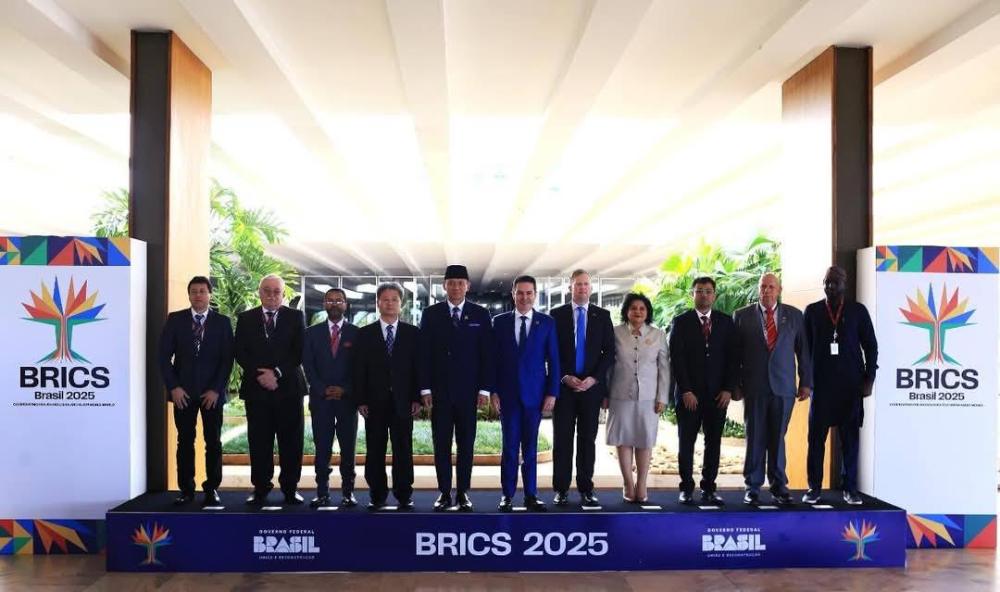The Government of Ethiopia has presented its ongoing urban development efforts at the BRICS Urbanisation Ministerial Forum, held in Brasilia, Brazil, according to a statement from the country’s Ministry of Foreign Affairs.
The high-level gathering, which brought together ministers and experts from BRICS member states and partner countries, focused on the future of urban development, sharing best practices and strengthening cooperation on how cities can be made inclusive, green, and resilient.
Ethiopia’s Ambassador to Brazil, Ambassador Leulseged Tadesse, represented the country at the forum and highlighted Ethiopia’s major achievements and policy strategies around urbanisation.
In his address, Ambassador Leulseged presented Ethiopia’s flagship Urban Corridor Development initiative, which aims to transform growing cities into modern, connected, and climate-resilient centres of growth.
The Urban Corridor Development approach links multiple cities and towns along major road and rail networks, allowing for more organised infrastructure, better service delivery, and stronger economic integration. According to the Ambassador, this model also helps to reduce pressure on individual urban centres by distributing development across regions.
“Our vision is to make Ethiopia’s cities more inclusive, safe, resilient, and sustainable, in line with the UN Sustainable Development Goals (SDGs),” Leulseged said.
He emphasised that the urban corridors are not only physical infrastructure projects, but also tools for poverty reduction, employment generation, and climate adaptation.
The Ambassador called on BRICS countries—Brazil, Russia, India, China, South Africa, and new member states such as Ethiopia—to deepen cooperation in urbanisation and explore tangible partnerships that benefit all sides.
“We believe that there is a need for stronger partnerships among BRICS members and stakeholders in the Global South to share knowledge, technology and finance for urban transformation,” he said.
The forum gave participating countries the opportunity to share experiences in housing, urban planning, climate change mitigation, smart city innovation, and basic service delivery. It also addressed challenges such as informal settlements, rising urban populations, and limited infrastructure funding.
Ethiopia’s participation in the forum marks a key moment in its involvement in BRICS, following its official entry into the group in January 2024. This growing partnership aligns with Ethiopia’s long-term development agenda under its national Ten-Year Perspective Plan (2021–2030) and Homegrown Economic Reform agenda.
Ambassador Leulseged held bilateral talks on the sidelines of the event with urban development officials from India, South Africa, and Brazil, exploring areas for technical exchange, investment partnerships, and urban planning expertise.
The BRICS Urbanisation Ministerial Forum is part of the broader BRICS+ cooperation framework, which seeks to bring emerging and developing nations together to jointly address global development challenges.
Urbanisation is a top priority for most African nations as they deal with rapid population growth, migration, and the rising demand for jobs, housing, water, and transportation services in cities.
For Ethiopia, where over 20% of the population now lives in urban areas, the need for well-planned, climate-conscious cities is growing urgent. Programmes such as the Urban Productive Safety Net Project (UPSNP) and the Integrated Housing Development Programme (IHDP) are already helping low-income urban households.
Ethiopia has also worked closely with partners like the World Bank, UN-Habitat, and the African Development Bank to secure financing and technical support for its urban projects.
Observers say that Ethiopia’s growing participation in global forums like BRICS strengthens its diplomatic voice and can attract much-needed investment in urban infrastructure, climate-smart housing, and youth employment.
